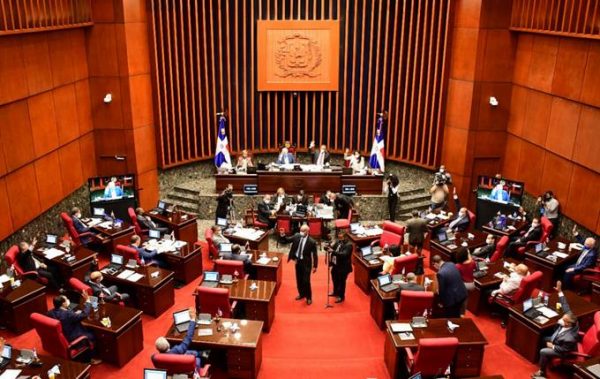
A referendum is a direct and universal vote in which an entire electorate is invited to vote on a particular proposal. The referendum may result in the adoption of a new policy or specific law. The referendum vote was included in the 2010 Constitution and maintained in the 2015 Constitution. Its implementation requires the previous passing of a law. The referendum is mentioned in articles 97, 203, 210 and 272 of the Dominican Constitution.
Art. 97 of the Dominican Constitution establishes the right of the people to introduce legislation. It establishes that citizens representing at least 2% of the electoral roll may propose bills to Congress. Yet it conditions this to a special law that needs to establish the procedures and restrictions for the exercise of this right.
Article 203 of the Dominican Constitution establishes the universal vote in referendums, plebiscites and municipal initiatives. The recourses are ordered to strengthen democracy and local governance. The Constitution calls for the passing of an Organic Law on Local Government that should establish the scope, requirements and conditions for exercising the referendum, plebiscite and the municipal initiatives at the local level.
Now, the Constitutional Court (TC) ruled that the National Congress has two years to pass the guidelines for the use of the referendum in the Dominican Republic. The time began to count following the notification of the decision by the Constitutional Court on 3 March 2021.
Art. 210 of the 2015 Constitution establishes that the referendum is the expression of the public that is governed by a law. The Constitution excludes from matters to be determined by referendum the confirmation or recall of any elected or appointed official. The Constitution mandates that referendums have congressional approval, by a vote of two thirds of the members present in each house.
Art. 272 of the Constitution rules for a referendum be used when constitutional reform may affect fundamental rights, guarantees and duties, territorial or municipal organization, nationality, citizenship or immigration, the monetary system or the amendment procedures established under the Constitution. The Central Electoral Board is to call the referendum after the National Assembly votes and approves the reform.
The Constitutional Court responded to a request made by the Fundación Evangélica de Socorro al Recluso (Fesore, Inc) that requested that the National Congress comply with the constitutional mandate in articles 97, 203, 210 and 272 of the Dominican Constitution that establishes the referendum as a method of citizen participation in making of policies and laws.
Read more in Spanish:
Constitutional Court
Listin Diario
5 March 2021

